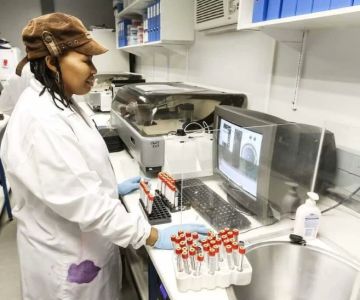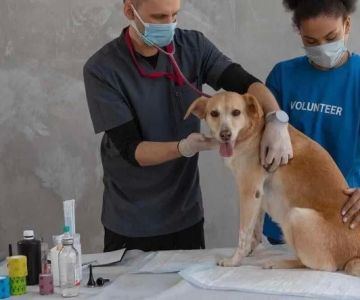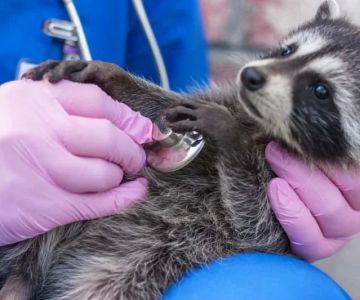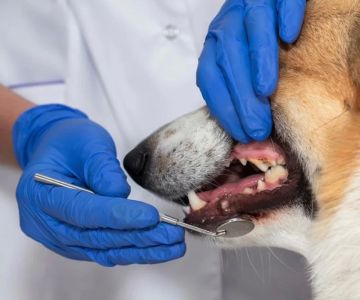What is the Training for a Veterinarian? A Detailed Look into Veterinary Education
- 1- Understanding Veterinary Training
- 2- The Step-by-Step Process to Becoming a Veterinarian
- 3- Essential Veterinary School Requirements
- 4- Gaining Practical Experience in Veterinary Training
- 5- Career Opportunities After Veterinary Training
- 6- Final Reflections on Veterinary Education and Training
1. Understanding Veterinary Training
The journey to becoming a veterinarian involves rigorous training and education that prepares individuals to care for animals in various settings. From diagnosing diseases to performing surgeries, veterinarians must acquire a deep understanding of biology, medicine, and animal care. So, what is the training for a veterinarian? It's a multi-step process that combines academic education with hands-on experience.
2. The Step-by-Step Process to Becoming a Veterinarian
Becoming a veterinarian is a long but rewarding process. Here’s a breakdown of the steps involved:
- Complete a Bachelor's Degree: The first step is completing an undergraduate degree, usually in biology, animal science, or a related field. This provides the necessary foundation in science that veterinary schools require.
- Apply to Veterinary School: After obtaining a bachelor’s degree, aspiring veterinarians must apply to an accredited veterinary school. This involves passing rigorous entrance exams and demonstrating relevant experience working with animals.
- Complete Veterinary School: Veterinary school typically lasts four years. During this time, students take courses in subjects such as anatomy, pharmacology, and pathology, while also gaining practical clinical experience.
- Pass Licensing Exams: To practice as a veterinarian, graduates must pass national and state exams. These exams assess the knowledge and skills needed to ensure they can provide safe and effective care for animals.
3. Essential Veterinary School Requirements
Veterinary schools have high standards for admission. In addition to completing the prerequisite undergraduate courses, applicants must often have hands-on experience in animal care, such as volunteering or working in veterinary clinics. Veterinary school requirements can vary from one institution to another, but the core elements are similar across the board. For example, some schools may prefer students with strong backgrounds in biological sciences and mathematics.
4. Gaining Practical Experience in Veterinary Training
Practical experience is an integral part of veterinary training. Throughout veterinary school, students are required to participate in clinical rotations where they work with animals under the supervision of licensed veterinarians. This real-world experience allows students to apply theoretical knowledge and develop critical skills necessary for diagnosing and treating animals. For example, many students gain experience by working in animal shelters, clinics, and farms to learn hands-on care.
Take, for instance, Dr. Sarah Johnson, who decided to intern at a local animal shelter during her veterinary school years. This gave her the chance to work with a variety of animals, from household pets to more exotic species, which ultimately made her more confident and capable as a veterinarian.
5. Career Opportunities After Veterinary Training
Once you complete your veterinary training, you’ll have many career opportunities to explore. Most veterinarians work in private practice, offering services to pets, livestock, and other animals. However, there are also numerous other career paths, such as:
- Specialization: Some veterinarians choose to specialize in fields like surgery, dentistry, or dermatology, which requires additional training and certification.
- Public Health: Veterinarians can also work in public health, helping to control animal diseases that can affect humans.
- Research: Veterinary research is another promising area, where vets contribute to the development of new treatments and medicines for animals.
For example, Dr. Alex Taylor, a veterinary specialist in cardiology, has taken extensive post-graduate courses and certifications to work with animals suffering from heart diseases. His expertise has made him a highly sought-after professional in his field.
6. Final Reflections on Veterinary Education and Training
The training required to become a veterinarian is demanding, but the reward is a career that can make a real difference in the lives of animals and their owners. If you are passionate about animal welfare and are willing to put in the effort, a career as a veterinarian can be deeply fulfilling. It requires dedication, compassion, and a strong academic foundation.
If you’re thinking about starting your journey toward becoming a veterinarian, it’s essential to research accredited veterinary schools and explore the specific training programs that align with your goals. Whether you are interested in general practice or pursuing a specialization, the right training can help you succeed in this field.
If you're ready to start your veterinary journey, consider looking into the best veterinary schools and educational resources that can provide the knowledge and skills necessary for your success. Enhance your qualifications with top-notch programs and training opportunities that give you the best start in this rewarding profession.









